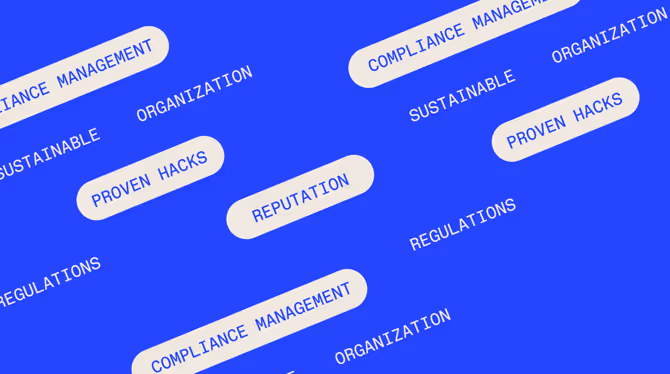Choosing an LMS to train your team better: why, when and how?

Empower your organization with the skills-based canvas.

First, let's start with the basics: what is an LMS?
It’s an acronym for Learning Management System.
In other words, it’s a digital solution that facilitates the management of internal training in your organization. It can be a web application, like Workleap LMS, or software you need to install on each computer.
But how do you choose a suitable learning management system for your organization?
You will then be able to make an informed decision to pick the solution that will allow you to train your team better!
Why use an LMS in my company?
There are several advantages to having an LMS, especially in a growing business.
Here are some critical contexts that encourage switching to online training:
- The turnover rate in your team is high or seasonal
- Your employees have very varied skills development needs
- Part of your team works remotely or on a flexible schedule
- You cannot train all employees simultaneously due to the nature of the operations (customer service, production line, time zones, etc.)
In all these cases, organizing in-person training for all of your staff is almost impossible. It is primarily ineffective, considering that everyone's needs are different.
Instead, using an LMS allows you to automate training management, thus optimizing internal resources.
How?
Reduce expenses related to continuous training, such as external trainers and room rental fees.
Decrease the management time required to monitor your employees’ progress in their training process.
Centralize all the data in a single platform so that you can generate reports in a few clicks.
Share the responsibility of training with managers and employees, who will be much more autonomous.
No more complicated spreadsheets and hundreds of follow-up emails!
In other words, there are benefits for the HR department and your entire team: from your executives who will have more precise figures to your employees who will be able to progress at their own pace.
When is the best time to implement an LMS?
Knowing that you need an LMS is one thing. Now you still have to take action!
Many people procrastinate in launching their online training project for all kinds of excuses, like:
- “The hardest part will be to set up the platform.”
- "It's going to be expensive."
- "We will have to implement the LMS everywhere in the company, right from the start."
These statements are false beliefs, but myths can become a reality if you're unprepared... Be careful not to fall into this trap!
To increase your chances of success, you should choose to implement an LMS at a critical moment in the evolution of your project.
How do I choose an LMS that meets my needs?
Choosing your learning management tool is a process that requires careful thought.
Above the price, you have to select an LMS that will support the real needs of your organization. Avoid being overwhelmed by advanced features that won't be useful to you!
Instead, here are some things you should be basing yourself on to make the best decision.
1. Organizational goals
What is the vision of your company?
What is your role in achieving this vision?
How will your LMS support your actions?
If your goal is to promote talent recruitment, you will look for an LMS focused on the employer brand. So you require a tool that is easy to customize with your organization's logo and colours.
If you are looking instead to improve staff retention, you may be prioritizing career development. So you will want an LMS that makes it easy to create and manage personalized learning paths!
If you want to support organizational changes, your LMS will be more oriented towards process documentation. So you want a platform that allows the integration of asynchronous content, such as videos or PDFs, and synchronous content. In that case, you would probably look for a solution that includes live sessions!
In short, the company's objectives greatly influence your strategic thinking and your needs' analysis. Take care to establish what you want to accomplish in the short and medium-term to make a better choice.
2. Your budget and your risk tolerance
I said you have to look beyond the price… but you should still have a look into it.
The cost of an LMS can vary a lot depending on the solution you choose. There are several elements to plan in your budget to calculate the actual cost of your project!
How to decide?
This is where your level of risk tolerance comes in.
When you have a custom application developed, you need to have an excellent understanding of your needs for the solution to be practical.
You also have to accept that the deadlines are approximate and that the project’s final cost could be more expensive than expected if the complexity increases along the way. Finally, keeping your application up to date will also take time and money.
When purchasing and installing existing software, the acquisition cost can be high, so make sure you know your needs once again. You also have to plan for maintenance and updating costs.
Your needs may change over the years, and this solution may no longer be suitable. Making the transfer won’t be easy and will again incur the cost of acquiring and installing the software in your system.
When you pay for a licence online, the cost is lower since the solution has been developed for a broader audience.
You have less control over the features, but you don't have to pay for maintaining and updating the app. And if the solution is no longer suitable for you, you can much more easily transfer to another LMS.
Another significant advantage of online solutions is the ability to pay according to your current growth.
It means that if you want to test a new training program in a specific department, you can pay less for your pilot project. The bill only increases when your needs grow!
Do the maths!
{emphasize}
Discover how to estimate the potential return on investment of Workleap LMS in your business.
{emphasize}
3. Technological independence of the team
Do your employees have access to a computer? To a tablet? To the internet?
How comfortable are they with technology?
If your staff does not have easy access to a computer, you want to choose an LMS that also works on tablet or mobile! This way, your employees can take online training when and where it’s most convenient for them.
If your team can't access the internet, you should consider a tool that allows downloading files or lessons. Thus, everyone can download the documents and consult them offline.
If you know that your employees are not very good with technology, the simplicity of your LMS will become a criterion of choice. Choose a solution designed to make life easier for its users and forget about too advanced options.
Your LMS should not become a blocker in the development of your talents! Keep the reality of your end-user in mind before making a choice.
Start using an LMS today!
Do you already have an in-house training program?
Digitalize it and integrate it for free on Workleap LMS! You could start a pilot project and invite your colleagues to test our LMS even before signing a subscription.
%20(1).png)

%20(1).avif)


.avif)
.avif)








